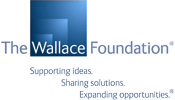The A word
KIff, I think the traditional canon vs. non-traditional music focus is as red herring an issue as arts skill building vs. arts integration. Yes, we pour energy into these seeming dichotomies (and I think other fields that happen to notice us are glad we do because it diffuses our potential force for change when we circle the wagons and shoot at other). I try to follow the challenge of David Bohm, the great physicist of the 20th century who said that any time you see seeming polarities, look for the greater truth that contains them both. I think we all know something about these greater truths, but we are not aiming for them.
I am not convinced Americans will ever value a serious commitment to the arts as a high priority of American life, as Laura posits the challenge--certainly not the way we define the arts so narrowly in this country--and if no change in that, there will never be any real change in the status quo of arts education. I think we need to tap that deeper agreement area about the arts where all Americans live the value of the arts but don't call them arts. Where we engage fully as humans. Where we pour ourselves into a task because we are intrinsically motivated to make something beautiful of it, even if it is a Thanksgiving table setting or conversation with a friend or report to a business committee. This is the deeper place that "art" has always come to life in, including the art of bricklaying, and it is about a pouring of the individual self into an enabling constraint in any medium (rondo form, 8 by 10 piece of paper, 5 paragraph essay, scientific method), about taking a skill or craft to a high level of expression, about inquiring and exploring in original ways and coming to new discoveries. And more.
The default definition of "art" is a huge problem for us--it puts us into a frame with many limiting associations, associations that are NOT true in the "artistry" people know, value and apply throughout their lives. I dream of an arts education that explicitly attends to these deeper, universal capacities, as it develops those skills, largely through arts media because they are more responsive, eloquent and rewarding than other media for exactly these skills.
About
Our Bloggers
Sam Hope, executive director, The National Office for Arts Accreditation (NOAA);
Jack Lew, Global University Relations Manager for Art Talent at EA;
Laura Zakaras, RAND;
James Cuno, Director, Art Institute of Chicago;
Richard Kessler, Executive Director, Center for Arts Education;
Eric Booth, Actor;
Midori, Violinist;
Bau Graves, Executive director, Old Town School of Folk Music;
Kiff Gallagher
Bennett Reimer, Founder of the Center for the Study of Education and the Musical Experience, author of A Philosophy of Music Education;
Edward Pauly, the director of research and evaluation at the Wallace Foundation;
Moy Eng, Program Director of the Performing Arts Program at The William and Flora Hewlett Foundation;
John Rockwell, critic;
Susan Sclafani, Managing Director, Chartwell Education Group;
Jane Remer, Author, Educator, Researcher
Michael Hinojosa, General Superintendent, Dallas Independent School District
Peter Sellars, director
Contact us Click here to send us an email... more
Peter Sellars on Creativity & the Voice more

3 Comments
Leave a comment